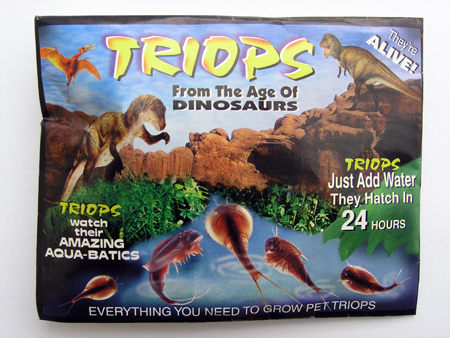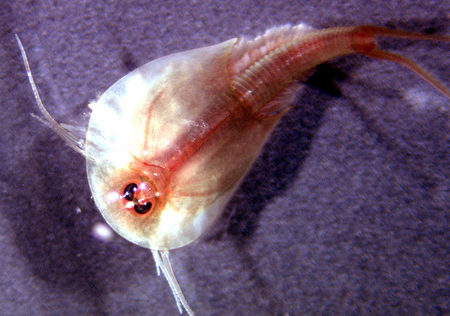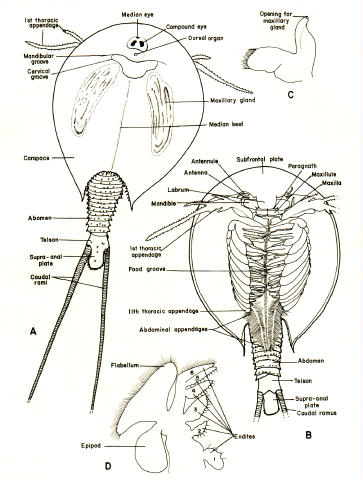Prehistoric Pets

The tadpole shrimp (scientific name = Triops longicaudatus, which are in the order Notostraca in the class Branchiopoda) inhabits freshwater, ephemeral ponds ranging from the southern regions of western Canada, through the United States and into Central and South America. Triops translates in Latin to three eyes and longicaudatus refers to the elongated abdomen and associated structures. Two genera (Triops [formerly Apus] and Lepidurus) constitute nine to twelve species within the Notostraca taxa. Triops is distinguished from Lepidurus by the absence of an anal plate. Fossil records indicate that these crustaceans evolved over 350 million years ago during the Devonian period and have remained relatively unchanged in external morphology. The persistence of these taxa during several geological extinctions may be related to the ability to remain in embryonic stasis for several decades.

Populations of Triops are comprised of males and hermaphrodites, with wide variation in the numbers of both sexual types. Most populations have many more hermaphrodites than males, and in some ponds, no males are found at all. The hermaphrodites can fertilize their own eggs, or can mate with a male. The fertilized eggs are called “cysts” or “resting eggs,” and can be dried for several years to decades before being hatching when rehydrated. In this cyst form, Triops can withstand extremes of heat and cold. (This is why they can be sold in plastic bags in novelty stores!) The eggs are carried by the hermaphrodites in small “brood pouches” located on two of their swimming appendages (about half-way down the length of the body, on the left and right sides). The eggs are either white or pinkish in color, and are carried in these pouches for between 12 and 24 hours before being laid in the ponds. The Triops have two large mandibles that they use for grinding up both live and dead food items. They eat plants, other animals, and sometimes even each other.

januari 29th, 2009 at 21:44
This was a very easy and fun to read article. I will definetly be checking your site often.
april 26th, 2009 at 19:18
Gotta love the effort you put into this blog 🙂